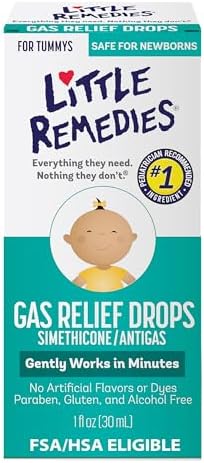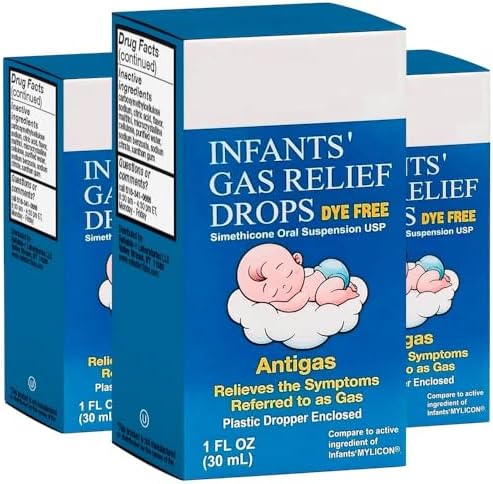What Are Some Signs of Gas in a Baby? As a new parent, deciphering your baby’s cries and discomforts can be challenging. One common issue infants face is gas, which can cause significant discomfort. Understanding the signs of gas in your baby is crucial for providing relief and ensuring their well-being.
How Can I Tell If My Baby Has Gas?
Babies often exhibit specific behaviors when experiencing gas discomfort. Recognizing these signs can help you address the issue promptly.
Common Signs of Gas in Babies
- Frequent Crying: Persistent crying, especially after feeding, may indicate gas discomfort.
- Pulling Legs Toward Belly: Babies may draw their legs up to their abdomen to alleviate gas pain.Parents+4Banner Health+4Bon Secours Blog+4
- Arching Back: Arching the back during or after feeding can be a sign of gas or reflux.
- Bloated Abdomen: A swollen or firm belly may suggest trapped gas.Banner Health
- Difficulty Sleeping: Gas discomfort can disrupt your baby’s sleep patterns.Lancaster General Health
These signs are commonly observed in gassy babies and can help you determine if your baby is experiencing gas-related discomfort .Pinterest+34Banner Health+34WebMD+34

What Causes Gas in Babies?
Understanding the causes of gas can aid in prevention and management.Verywell Family+4Texas Children’s+4Parents+4
Common Causes
- Swallowing Air: Babies can swallow air during feeding or crying, leading to gas buildup.WebMD
- Immature Digestive System: An underdeveloped digestive tract can make it harder for babies to process food, resulting in gas.
- Feeding Techniques: Improper latching during breastfeeding or bottle-feeding can increase air intake.WebMD
- Dietary Factors: Certain foods in a breastfeeding mother’s diet or formula ingredients can contribute to gas.
How Can I Relieve My Baby’s Gas?
There are several strategies to alleviate gas discomfort in babies.
Effective Relief Methods
- Burping: Burp your baby during and after feedings to release trapped air.Banner Health+1WebMD+1
- Tummy Time: Placing your baby on their stomach can help expel gas.Pinterest
- Bicycle Legs: Gently moving your baby’s legs in a bicycling motion can stimulate gas release.Mama’s Choice Blog+6Parents+6Pinterest+6
- Warm Baths: A warm bath can relax your baby’s muscles and help pass gas.Enfamil+4Pinterest+4Wikipedia+4
- Massage: Gently massaging your baby’s tummy in a clockwise motion can aid digestion.
When Should I Consult a Pediatrician?
While gas is common, certain symptoms warrant medical attention.
Warning Signs
- Persistent Crying: If your baby cries inconsolably for extended periods, consult a doctor.Parents
- Vomiting: Frequent or forceful vomiting may indicate a more serious issue.Banner Health
- Blood in Stool: This could be a sign of a digestive problem requiring medical evaluation.
- Fever: A fever in infants under three months old should be assessed by a healthcare provider.
FAQs
It’s recommended to burp your baby after every 2-3 ounces of formula or when switching breasts during breastfeeding.
Yes, certain foods in your diet, like dairy or spicy foods, can cause gas in breastfed babies. Consider eliminating potential culprits to see if symptoms improve.
Over-the-counter gas drops containing simethicone are generally considered safe, but it’s best to consult your pediatrician before use.
Yes, bottles designed to reduce air intake can help minimize gas. Look for bottles labeled as anti-colic or gas-reducing.
Yes, passing gas 13-21 times a day is typical for infants and usually not a cause for concern unless accompanied by discomfort.
References:
- Children’s Hospital of Philadelphia. “How to Help a Newborn with Gas.”Children’s Hospital of Philadelphia
- Banner Health. “Gassy Baby: Six Ways to Help Your Baby Find Relief.”Texas Children’s+6Banner Health+6Banner Health+6
- Medical News Today. “Causes and how to relieve gas in a baby.”Medical News Today
- WebMD. “Infant Gas: How to Prevent and Treat It.”Pinterest+3WebMD+3Pinterest+3
- Healthline. “Why Is My Baby Arching Their Back — and When Should I Worry?”Better Health Channel+2Healthline+2WebMD+2
- The Bump. “Gassy Baby: Signs, Causes and Relief.”Texas Children’s+6The Bump+6Banner Health+6
- Parents.com. “What Causes Back Arching in Babies?”Bon Secours Blog+3Parents+3WebMD+3
- Verywell Family. “How to Help a Baby or Toddler With Gas.”Wikipedia+8Verywell Family+8Children’s Hospital of Philadelphia+8
- Mayo Clinic. “Colic – Symptoms & causes.”Enfamil+6Mayo Clinic+6Birth Injury Help Center+6
Note: This article is for informational purposes only and does not substitute professional medical advice. Always consult your pediatrician for concerns about your baby’s health.
I’m Cris Coelho, and motherhood has transformed my life!
As a speech therapist and early childhood educator, I’ve always been passionate about child development. But it was becoming a mother that truly opened my eyes to the real challenges and joys of this journey.
Here at Materníssima, I share everything I’ve learned — blending professional knowledge, real-life experience, and a heartfelt touch.
You’re very welcome here! 💕






